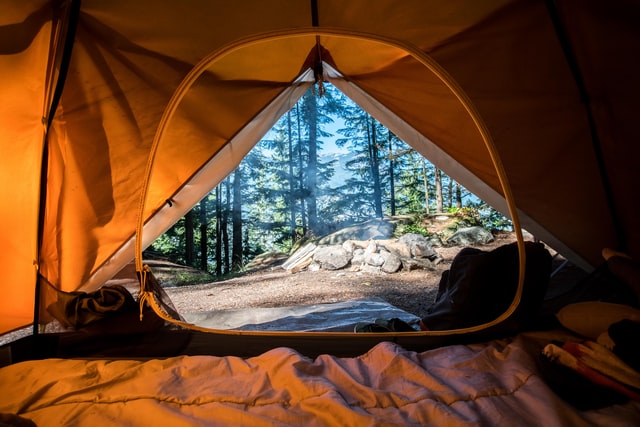
As we are bombarded by the loud honks and blinding lights of city life, everything seems exhausting. Hectic tasks and schedules are also added to the long list of stress inducers. One of the recreational activities that we perceive to be destresser is camping.
When we camp, aside from enjoying our company through socialization, we acquire a breath of fresh air and an excellent way to exercise. Who doesn’t love to twist and turn a marshmallow over the bonfire to make beautiful smores right away?
However, as we laugh and enjoy a good night’s sleep in our warm cozy tent, let us not forget to practice cautiousness and care for surroundings. Let the recreation not disturb the natural habitats of all the living things in the area.
Why protect nature?
Nature we live in is not ours to abuse. We must bear in mind that we owe the world we live in today to the generations to come. You do not want to let your child and your descendants live on a tumbled-down planet.
Moreover, nature provides us with the food we need to survive. It also gives us materials for our homes. It is the invisible string that binds all the thriving entities there are. By not protecting the ecosystem we live in, we are putting humanity and other living things in danger. Slowly, we become thieves robbing the goodness of nature from the future people.
We should be the stewards of nature because we are the highest form of being here on earth. It is a moral responsibility to tend to. It is the primary reason why we should protect our nature.
10 Ways on How to Enjoy Camping Without Harming Nature
We made this ten-way guide to enjoying camping by taking into consideration the welfare of your chosen campsite. The guide includes the dos and don’ts for you to observe before, during, and after the camping activity.
Dos
1. Use eco-friendly body products
It is essential to ensure that you use eco-friendly toiletries or body products such as soap, lotions, sunscreens, and other skincare products. In addition, it must not contain the following chemicals: permethrin, formaldehyde, BHA (Beta Hydroxy Acid), BHT (Butylated hydroxytoluene), and avobenzone since it may harm coral reefs, contaminate bodies of water, and kill aquatic living things such as fish and shellfish.
Avobenzone is a sunscreen ingredient that can be lethal to water organisms. Hence, never use products containing these chemicals during camping. More so, never bathe in the bodies of water when wearing these chemicals. It is preferred to use biodegradable toothpaste that is not harmful to ingest by nearby animals. Stay a minimum of 200 feet away from bodies of water when using soap and toothpaste.
2. Bring reusable food containers and utensils
Packing your food is better than buying instant products wrapped with non-biodegradable plastics. Plan your meal, cooked or uncooked, to avoid last-minute store purchases that will surely make you bring plastic waste to the campsite. You don’t want to pack your bag with a lot of garbage on your way home since it may appear to be unhygienic.
Instead of using plastics like cling wraps, try to use resealable sandwich bags instead. Bring energy-filled foods like nuts, granola, and deboned meats or better meat jerky to refrain yourself from throwing off bone leftovers. They might attract nearby animals and can cause indigestion or choking to them. In addition, there are chances that when they scavenge for food, they might accidentally trap their head inside plastic bottles and containers and might lead them to suffocation and worse death.
3. Respect and follow trail signage
Trails are meant to be followed. Aside from being lost in the camp area, many adverse effects from going off the path can cause. First, your footsteps can damage a lot of floras or natural habitats. Second, the next set of campers may follow your last trail and widen the area to make a new trail that prevents the existing plants from thriving in the area.
Learn to leave things as is in passing the designated trail. Never carry shiny rocks or something to pay respect to the place. Remember that you are a visitor, not a thief.
4. Observe silence
Camp and party are both recreational activities, yet they differ in their etiquette and purpose. Camping is more about gaining spiritual connection with yourself and with nature. It is better done with manageable small groups rather than uncontrollable large ones.
To avoid being a nuisance to the living things in the area, keep your voice low; a mid-volume chat is fine. However, do not bring speakers and play rock and metal music. It would deviate you from gaining self-peace and connecting with your company. Silence also means paying respect to the place since there are both seen and unseen elements present in the surroundings.
5. Lay your tent only on designated areas
Campsites usually assign areas for campers to assemble their tents. However, if there is none, always prioritize your safety by evaluating and observing the possible hazards in the area. For example, never camp near creekside, anthills, under gum trees, or frail trees that can fall off your tent.
A bug-out tent or tarp is a lightweight tent to pack. It can hold more than one person and is best if you are camping with your family. Some tents can stand in any season, may it be winter or summer. A camouflage one is better to hide from creepers or any burglars during the night.
Don’ts
1. Leave no trace
Do you believe in the saying, “Preserve, because nature gives what you deserve.”? It simply explains how nature has its way of practicing karma or the golden rule. What comes around goes around, they say. So, better be careful when camping. Practice “Clean-As-You-Go (ClayGo)” in whatever you do.
What you have packed before in your bug-out bag, you shall carry as well the moment you go home. Be aware, responsible, and accountable for all your actions. Preserve the beauty of the campsite and the life of those thriving in the area. Lucky for you if the camp provides trash bins, yet take note that not all have this.
2. Do not leave the fire unattended
Camping always depicts a picture of people gathering around a bonfire. Therefore, it is a no-brainer that fire is essential when camping since it provides heat and light to campers at night.
The first safe thing to do is to research if there are existing fire bans in the place. Moreover, learn some fire-building techniques to be equipped during the camp. When building a fire, please keep it away from combustible or flammable materials such as your tent or trees. Next, create fire only in fire pits.
Try bringing alcohol stoves or liquid fuel compatible stoves since they are convenient and often refillable. They are also transportable inside the backpack. And, upon leaving the area, make sure to put off the fire 45 minutes to 1 hour before setting off. Again, it is to ensure that all the flames are out to avoid burning down the site.
3. Do not feed the animals
Feeding wild animals is tolerating them to go back to the campsite all the time. And it can be detrimental to campers’ safety. Also, most human food is not safe for them to eat. Our food can threaten their health since some ingredients include preservatives and are not a great source of nutrition.
4. Don’t contaminate the water
Water is one of the natural resources on the planet that we must take good care of. When building a fire, using chemicals, and using soap, stay away from the streams of water to avoid contamination. Every time you wash your dishes, use your water instead. If you need to go to the bathroom, you can dig a pit or a cat hole and cover it afterward. Never throw your dirt anywhere since the rain might wash it off to rivers.
Ensure to bring an ample amount of water for the number of camp days and campers you are with. If you lack water, get water filters and purifiers in case. Then, fetch water from streams and do the cleaning process in your container.
5. Take nothing but photos and memories
People are very sentimental. We often take souvenirs from places that we traveled since it reminds us of the experience and the happy memories we had in the area. However, when camping, it is a big NO. By doing this, you are removing the natural things in animals’ natural habitat and might cause disturbance on their part.
Take pictures instead. Yet, avoid using cameras with flash since light-sensitive animals can be affected worse if they’d go hysterical and attack you.
Camp responsibly!
Camping is a compelling interest to venture into. It gives people a chance to detach themselves from the city’s pollutants and be one with nature. Since we are lucky enough to enjoy this activity provided by our environment, let this be a mutual relationship.
In return for the earth’s kindness, we must abide by the rules in protecting the campsite and avoid inflicting harm to the living things in the area. Remember that we people are stewards of this planet to enjoy life to the fullest; let us adhere to this responsibility.



